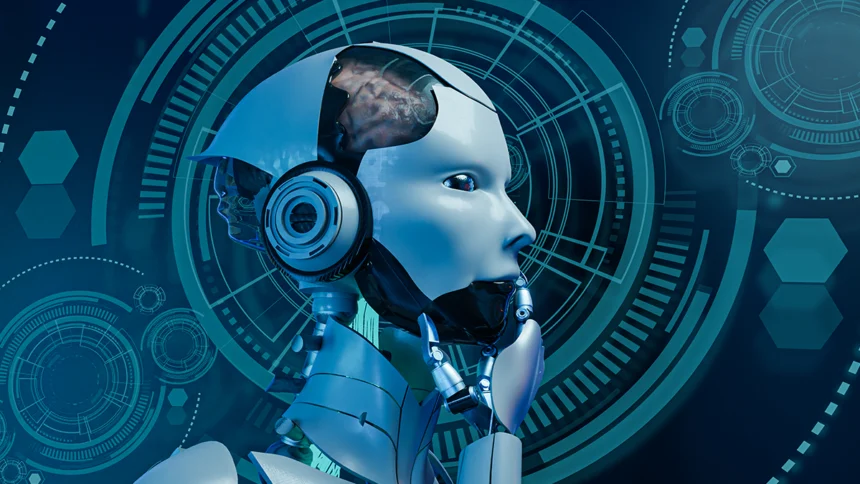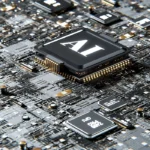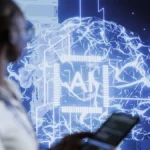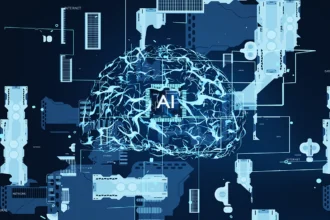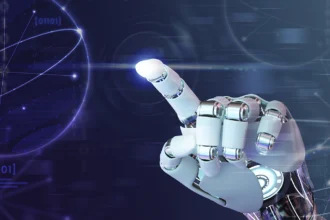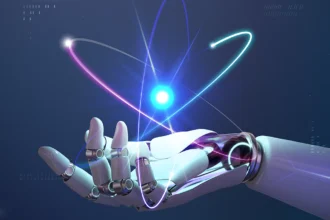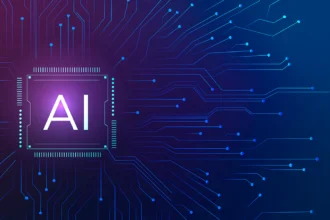Have you ever wondered how artificial intelligence (AI) might shape our lives in the coming decades? As we stand on the brink of technological breakthroughs, the potential for AI to transform various aspects of humanity’s future is more significant than ever. From revolutionizing healthcare to redefining education, the impact of AI on society is both exciting and daunting. In this article, we’ll explore how AI will transform humanity’s future, diving deep into various sectors where its influence will be felt the most.
The Dawn of a New Era
As we delve into the future, it’s crucial to understand that AI is not just a trend; it’s a revolution. The question is not whether AI will change our lives, but how profoundly it will do so. With advancements in automation, innovation, and technology, AI is poised to take center stage.
What is AI?
At its core, artificial intelligence refers to the simulation of human intelligence in machines designed to think and learn like humans. This includes abilities such as reasoning, problem-solving, and understanding natural language. With AI’s rapid advancement, it’s essential to grasp how it operates, as its mechanisms will underpin its transformative effects on humanity.
AI and the Future of Work
One of the most pressing concerns about AI is its impact on employment.
Automation: Friend or Foe?
- Job Displacement: AI and automation threaten to displace many traditional jobs. For instance, roles in manufacturing, retail, and even customer service are increasingly at risk as companies seek efficiency through automation.
- Job Creation: Conversely, AI also creates new job categories that didn’t exist a decade ago, such as AI ethics officers, data scientists, and machine learning specialists.
Table 1: Job Market Impact of AI
| Impact Category | Positive Effects | Negative Effects |
|---|---|---|
| Job Creation | New roles in tech and ethics | Few skilled workers available |
| Job Displacement | Efficiency and cost reduction | Loss of low-skill jobs |
| Work Environment | Enhanced collaboration | Need for reskilling |
Adapting to Change
To navigate the challenges posed by AI, workforce reskilling and upskilling will be essential. Educational institutions and corporations must collaborate to ensure that workers are equipped with the skills necessary to thrive in an AI-driven economy.
Transforming Healthcare
AI’s impact on healthcare is nothing short of revolutionary. With AI tools and algorithms improving diagnosis and treatment processes, the future of healthcare looks promising.
Enhancing Diagnostic Accuracy
- Predictive Analytics: AI can analyze vast amounts of data to predict health issues before they become critical. For example, AI algorithms can process medical imaging faster and more accurately than human radiologists, leading to early detection of diseases like cancer.
- Personalized Medicine: Tailoring treatments to individual patients based on genetic data is becoming increasingly feasible thanks to AI.
Ethical Considerations
The integration of AI in healthcare brings forth ethical dilemmas that must be addressed. Issues such as patient privacy, data security, and the potential for bias in algorithms necessitate a robust ethical framework.
Table 2: AI Applications in Healthcare
| Application | Benefits | Challenges |
|---|---|---|
| Diagnostic Tools | Early disease detection | Data privacy concerns |
| Treatment Plans | Personalized medicine | Algorithm bias |
| Administrative Tasks | Reduced workload for staff | Dependence on technology |
Revolutionizing Education
The role of AI in education is also transformative, enabling personalized learning experiences.
Personalized Learning Experiences
AI can tailor educational content to individual students’ needs, allowing for more effective learning. Tools like intelligent tutoring systems can adapt to a student’s learning pace and style.
Automation of Administrative Tasks
Educators often find themselves bogged down with administrative duties. AI can streamline these tasks, allowing teachers to focus more on teaching and less on paperwork.
List: Benefits of AI in Education
- Personalized Learning: Adapting lessons to individual needs.
- Efficient Administrative Tasks: Automating grading and scheduling.
- Accessibility: Creating learning materials for students with disabilities.
- Data-Driven Insights: Analyzing student performance to improve outcomes.
Sustainability and AI
As humanity grapples with climate change and environmental degradation, AI offers tools to promote sustainability.
Smart Resource Management
AI can optimize resource use in various sectors, including agriculture, energy, and waste management. For example, AI-driven sensors can monitor soil health and crop conditions, ensuring efficient water use and reducing waste.
Renewable Energy Solutions
AI can enhance the efficiency of renewable energy sources. Algorithms can predict energy production and consumption patterns, facilitating better integration of renewable resources into the energy grid.
The Ethical Dimensions of AI
With great power comes great responsibility. As AI continues to evolve, ethical considerations must remain at the forefront of its development.
Addressing Bias in AI
Bias in AI systems can lead to discriminatory practices, particularly in areas like hiring and law enforcement. It’s essential to ensure that AI systems are trained on diverse data sets to minimize bias and promote fairness.
Privacy Concerns
As AI systems collect and analyze vast amounts of personal data, privacy concerns are paramount. Establishing robust data protection measures is essential to safeguard individual privacy.
Innovation: The Key to the Future
Innovation drives the development of AI, paving the way for breakthroughs that can change the course of humanity.
Collaborative Innovation
Partnerships between governments, private sector companies, and academic institutions are crucial for fostering innovation. By sharing resources and knowledge, these entities can accelerate AI development and address challenges collaboratively.
The Role of Startups
Startups often lead the charge in AI innovation, creating disruptive technologies that challenge the status quo. Supporting these enterprises can result in significant advancements in various fields.
FAQs About AI’s Impact on Humanity
How will AI impact job opportunities in the future?
While AI may displace some jobs, it will also create new opportunities in fields related to AI development, ethics, and maintenance.
What are the ethical concerns surrounding AI?
Major ethical concerns include bias in AI algorithms, privacy issues, and the potential for job displacement.
How can AI improve healthcare?
AI enhances diagnostic accuracy, personalizes treatment plans, and streamlines administrative tasks in healthcare settings.
In what ways can AI contribute to sustainability?
AI optimizes resource management, predicts energy consumption, and aids in developing renewable energy solutions.
How can education benefit from AI?
AI personalizes learning experiences, automates administrative tasks, and provides data-driven insights to improve student outcomes.
READ MORE : What AI Act Changes Mean for Tech in 2024
Conclusion
The potential for AI to transform humanity’s future is vast and multifaceted. From revolutionizing healthcare and education to promoting sustainability and ethical considerations, AI is poised to reshape our world in ways we can barely imagine. As we embrace this technological revolution, it’s crucial to navigate its challenges thoughtfully and collaboratively.
Thank you for exploring the exciting prospects of AI with us! To stay updated on the latest trends in AI and technology, join us through social media, subscribe to our push notifications, and sign up for our newsletters. Let’s embark on this journey into the future together.


